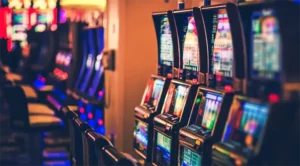 New research claims that individuals suffering from obsessive-compulsive disorder (OCD) and problem gambling tend to learn through distinct reinforcement mechanisms.
New research claims that individuals suffering from obsessive-compulsive disorder (OCD) and problem gambling tend to learn through distinct reinforcement mechanisms.
Scientists from the University of Melbourne have reported there are distinct patterns of reward-seeking behaviour of people suffering from gambling addiction and obsessive-compulsive disorder. In a study published in PLOS Biology, the main author of the study, Shinsuke Suzuki, states that problem gamblers demonstrate boosted and blunter learning from rewards higher and lower than expected, respectively, while individuals who suffer OCD usually have lower-than-normal learning rates when receiving smaller-than-expected rewards.
Even though obsessive-compulsive disorder and problem gambling share some common features, such as behavioural inflexibility, they also have some distinctive features that might be associated with the differences in the way how brains of people facing either one of these conditions process so-called reward-based learning. According to scientists, understanding the differences between obsessive and addictive models of behaviour is extremely important for developing the right treatment for conditions such as OCD and gambling addiction.
The problem was approached by a group of researchers from the University of Melbourne by modelling learning behaviour and the brain activity associated with it, focusing on how each group of participants learned when the outcomes (rewards) turned out different from what they expected – a measure known as “prediction error”.
The scientists revealed they examined the evidence for unbalanced reward-learning in both problem gambling and obsessive-compulsive disorder by using model-based functional magnetic resonance imaging (fMRI). The study’s findings make clear the neural calculations of reward-learning that are changed in OCD and gambling addiction, providing a potential account for the aforementioned mental disorders’ behavioural lack of flexibility.
New Evidence Could Result in Different Treatment Approaches from Gambling Addiction and OCD
 The aforementioned study, which was financially supported by the National Health and Medical Research Council of Australia, highlights the advantages of using a neurocomputational approach when studying psychiatric disorders. By analysing the differences in the groups’ positive and/or negative reinforcement learning, such an approach could really help detect even small differences between conditions, and this could eventually point specialists toward using different treatment approaches for problem gambling and OCD.
The aforementioned study, which was financially supported by the National Health and Medical Research Council of Australia, highlights the advantages of using a neurocomputational approach when studying psychiatric disorders. By analysing the differences in the groups’ positive and/or negative reinforcement learning, such an approach could really help detect even small differences between conditions, and this could eventually point specialists toward using different treatment approaches for problem gambling and OCD.
The main author of the study, Professor Suzuki, noted that problem gamblers and individuals suffering from obsessive-compulsive disorder demonstrated distinct patterns of learning from outcomes that were both better and worse than expected.
The study proved that individuals suffering from OCD and problem gambling learn through different reinforcement mechanisms. Both conditions are accompanied by some deficits in individuals’ behavioural flexibility which can reflect uneven learning from outcomes both larger or smaller than the ones initially expected when it comes to reinforcement learning. When it comes to alternative frameworks, it reflects repetitiveness and continuousness independent of learning.
As mentioned above, the scientists found that when seeking rewards, people suffering from obsessive-compulsive disorder did not learn as well as the control group of participants when the rewards occurred to be smaller than expected. The result was reflected by lower-than-normal negative prediction errors registered in the brain’s dorsal striatum and the dorsomedial prefrontal cortex.
Apart from that, people suffering from gambling addiction displayed “over-learning” when the rewards they got turned out higher than initially expected. For such individuals, the higher-than-normal positive prediction errors were reflected in the anterior insula of the brain.
Neither group, however, showed any differences from the control group of participants when asked to avoid unwanted outcomes.
- Author


